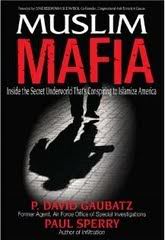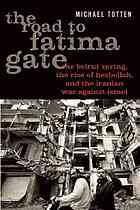As a new member of the UN Human Rights Council, the US must persuade other countries not to go along.
By the Monitor's Editorial Board
from the October 27, 2009 edition
http://www.csmonitor.com/2009/1027/p08s01-comv.html
Remember the Danish "Muhammad cartoons" that set off riots by offended Muslims more than three years ago? The debate pitted freedom of press and speech against notions of freedom from insult of one's religion. It rages still – but now in a forum with international legal implications.
For years, Islamic nations have succeeded in passing "blasphemy" resolutions at the United Nations (in the General Assembly and in its human rights body). The measures call on states to limit religiously offensive language or speech. No one wants their beliefs ridiculed, but the freedom to disagree over faith is what allows for the free practice of religion. The resolutions are misguided, but also only symbolic, because they're nonbinding.
Symbolism no longer satisfies the sponsor of these resolutions – the Organization of the Islamic Council. Under the leadership of Pakistan, the 57-nation OIC wants to give the religious antidefamation idea legal teeth by making it part of an international convention, or legally binding treaty. Members of the UN Human Rights Council are passionately debating that idea in Geneva this week.
The United States under Barack Obama recently joined the UNHRC, maligned for years as the mouthpiece for countries that are themselves flagrant human rights abusers. A "new" council formed in 2006. President Obama's hope is that as an engaged member, the US can further reform – and its own interests. This case will test his theory.
Consider the wording put forth by Pakistan, written on behalf of the OIC. It proposes "legal prohibition of publication of material that negatively stereotypes, insults or uses offensive language" on matters regarded by religious followers as "sacred or inherent to their dignity as human beings."
This gives broad latitude to governments to decide what's offensive. Countries such as Pakistan already have national blasphemy laws, but a global treaty would give them international cover to suppress minority religious groups with the excuse that these groups offend mainstream beliefs.
And what about unpopular, even "insulting" dissenters within a majority religion – such as women who seek to interpret Islamic sharia law so that they may gain more rights?
Besides, international treaties are meant to protect the rights of people, not ideas. A legal defense of dignity – how a person is viewed – is not on par with a defense of a person's inherent identity and rights. And treaties already aim to protect individuals from discrimination and violence based on religion.
As a newcomer to the Human Rights Council, the US is vigorously arguing against the OIC's latest push, as are European countries. They may not get very far in changing minds in the governments of Egypt or Saudi Arabia. But human rights advocates such as Freedom House and the US Commission on International Religious Freedom say Latin American and sub-Saharan African countries could be persuaded to resist the OIC's push.
These largely non-Muslim countries have typically voted as a bloc on the nonbinding religious defamation resolutions. But the trend has shifted so that more of them are now either abstaining or voting against the resolutions. Chile, for instance, recently switched from abstain to "no" at the March Human Rights Council vote; Liberia switched from "yes" to "no" at the last General Assembly meeting.
These are democracies that understand that suppression of speech in the name of religion can come with a negative effect – suppression of people and theological fault lines that at some point will erupt. It is, conversely, open debate, interfaith dialogue, and righting of misconceptions that will allow religion to flourish – including Islam, whose many followers feel so maligned at the moment.
"Some claim that the best way to protect the freedom of religion is to implement so-called antidefamation policies that would restrict freedom of expression and the freedom of religion. I strongly disagree," said Secretary of State Hillary Rodham Clinton this week.
She went on to argue that the best antidote to religious intolerance is enforcement of antidiscrimination laws, government "outreach" to minority religious groups, and "the vigorous defense of both freedom of religion and expression."
The US is now in a position to persuade along these lines from inside the Human Rights Council. It should proceed with the vigor that Ms. Clinton talked about.
Wednesday, October 28, 2009
Subscribe to:
Post Comments (Atom)











No comments:
Post a Comment